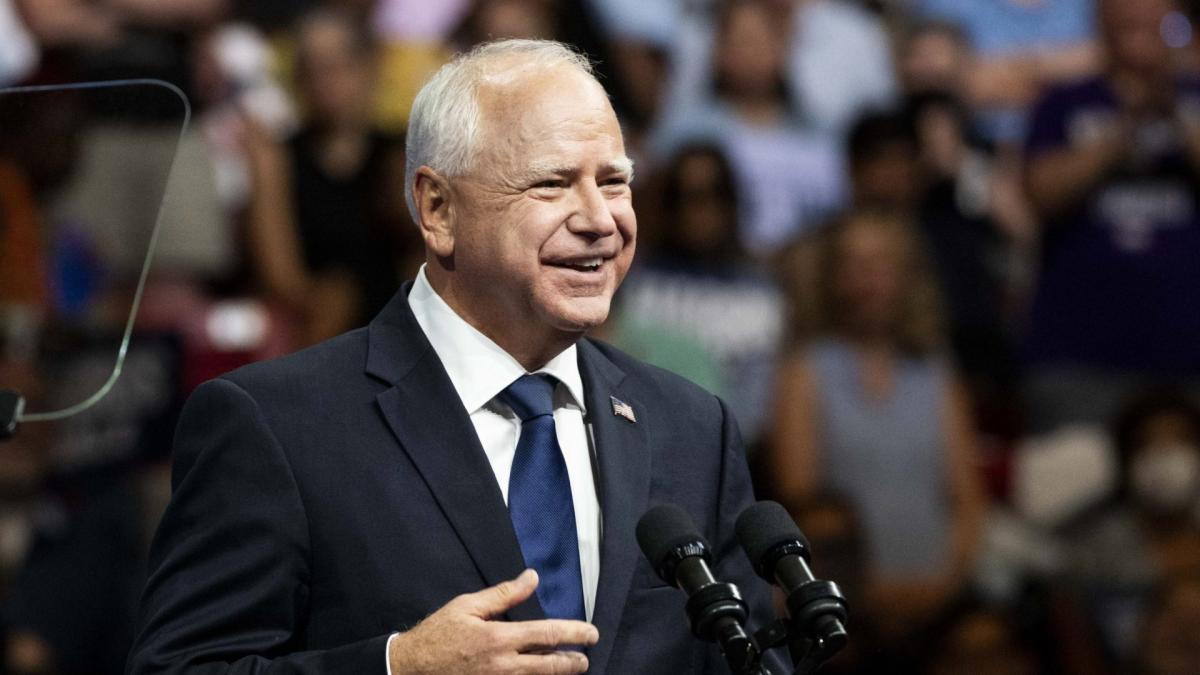As Minnesota Governor Tim Walz steps into the national spotlight as Kamala Harris’ running mate for the 2024 presidential election, his economic policies are under a microscope.
Read Next: I’m an Economist: Here’s My Prediction for the Working Class If JD Vance Is Vice President
Find Out: 7 Reasons You Must Speak to a Financial Advisor To Boost Your Savings in 2024
GOBankingRates spoke to financial experts to get their thoughts on Walz’s financial policies as governor and what he might bring to the role of Vice President.
Earning passive income doesn’t need to be difficult. You can start this week.
Walz’s Financial Policies as Governor
Anthony Termini, an investment advisor and expert contributor for Annuity.org, pointed to five key financial policies Walz enacted during his tenure as governor:
-
cutting taxes in each of his budgets
-
providing rebates to seniors, working families with children and students
-
eliminating state income taxes on Social Security benefits
-
lowering income tax rates on small businesses
-
legalizing marijuana
These policies aimed to provide relief to various segments of Minnesota’s population, from young professionals and working families to seniors and small business owners.
Budget Surpluses Under Walz’s Leadership
Termini also highlighted Walz’s track record of creating budget surpluses.
In 2022/2023, the governor created an $820 million budget surplus, followed by a surplus of nearly $3.7 billion in 2024/2025 and an estimated $2.2 billion for 2026/2027. Walz also cut taxes for working class Minnesotans in every one of his budgets, while also giving tax credits to seniors, working families with children and students.
These surpluses suggest fiscal responsibility while still providing tax relief and credits to various groups.
Consider This: Should Trump Eliminate Income Taxes? Here’s What Tax Experts Say
Potential Role as Vice President
Regarding Walz’s potential influence if elected, Termini said, “The Vice President’s only constitutional authority is to break voting ties in the Senate. Therefore, his only influence on economic policy will be limited to how the chamber votes on President Harris’ policy objectives.”
However, Termini suggested that Walz may have some influence when it comes to shaping policy because he’ll have the President’s ear.
Energy Policy Considerations
Matt Willer, a partner and the managing director of capital markets at Phoenix Capital Group, offered insights into the potential energy policies of a Harris-Walz administration.
With their history of supporting climate and energy policies, Harris and Walz need to tread carefully to make sure they also address the commercial reality of today’s energy landscape and the delicate balance between environmental goals and economic realities.
As Willer said, “Nine-dollars a gallon gas is unpopular with voters of any political bias, and demand for oil and gas is extremely high and rising due to population growth, AI, machine learning, the lower-than-expected evolution of green energy and the lack of widespread adoption of electric vehicles.
He also warned of the potential economic impact of abrupt policy changes, advocating for a measured, long-term approach to energy policy. He said it would be best if Walz and Harris work with policymakers and the private sector to build a multi-decade transition plan grounded in facts, data and achievable goals and milestones.
The Takeaway
As Tim Walz transitions from governor to vice presidential candidate, his economic policies in Minnesota provide a glimpse of what he might bring to a potential Harris administration. His track record of tax cuts, budget surpluses and support for working families and seniors could inform national policy discussions.
However, as Willer points out, the complex realities of the national energy policy may require a careful, balanced approach that considers both environmental goals and economic impacts.
The coming months will likely see increased scrutiny of Walz’s policies as voters consider the potential economic direction of a Harris-Walz administration. As always, the translation of state-level success to national policy remains a key question in American politics.
Editor’s note on election coverage: GOBankingRates is nonpartisan and strives to cover all aspects of the economy objectively and present balanced reports on politically focused finance stories. For more coverage on this topic, please check out 4 Economic Policies of Trump’s VP Pick, JD Vance, That Could Help the Upper Class.
More From GOBankingRates
This article originally appeared on GOBankingRates.com: 5 Financial Policies Walz Enacted While in Office — and What He Could Do as VP
